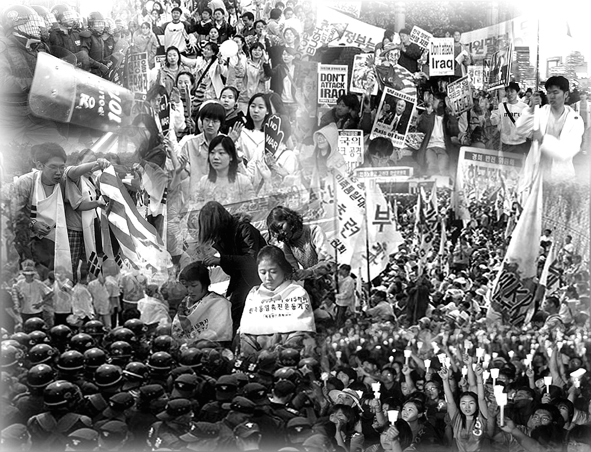
In a press release, the NSBA stated that the universal student movement that used to prevail in the 1980"s no longer exists in the current era. "Moreover, no relevance or connection between students" lives and student goverments projects can be found any more. We need to put an end to the current situation and seek new ways to approach students," an NSBA member commented.
The statement reflected a consensus among association members that their primary concern had been on winning student government elections to take advantage of the financial support that student councils receive from schools and students, rather than on actively serving the needs of students.
The NSBA also declared that they will, from now on, campaign for the liquidation of student governments that are not part of the NSBA. To construct a new paradigm for student governments, the NSBA believes that everything should start from scratch. "In reality, student governments have already lost support from students and its function to self-administrate. The current system should be uprooted for the advent of a new paradigm" reads the statement.
From the 1980"s and mid-1990"s, it was the golden rule to have student governments run by student activists. The Korean society was undergoing one of the most turbulent moments in modern history. Suppressed citizens longed for democracy and liberty from the dictatorial military regime that had lasted for over 30 years. In the process of gaining freedom and democratic rights, student activists contributed with their relentless passion and bold actions.
The NSBA was founded in 1999 as part of the People"s Democracy movement under the slogan of "solidarity among student councils based on anti-capitalism." People"s Democracy tends to see the origins of social problems in the unfair structure of capitalism. Therefore, groups associated with this doctrine attempted to unite with laborers to carrying out projects advancing social justice. Accordingly, the NSBA organized and carried out various activities based on this philosophy with themes such as "union with laborers," "anti-sexual violence," "protection for conscientious objectors," and "withdrawal of U.S. Forces in Korea." Unlike the other umbrella student group Hanchongryun, which has a National Liberation Front (NFL) background, the NSBA favored cutting down the military budget over reunification as a means to maintain peace on the Korean Peninsula (The NLF believes that all social problems in Korea result from the partition of the Korean Peninsula).
However, the student movement took a downturn as the economy boomed and society liberalized. Dramatic measures taken by student activists were increasingly unwelcome and they began to lose their base of support among fellow students. While society was changing, student activists did not make any adjustments to their policies. Thus, starting in the 1990"s, many non-activist candidates came to power in student governments.
The NSBA"s decision to disband comes as a reaction to these trends. However, Choe explained, "disbanding the organization does not mean an end, but a preparation for another start." NSBA members thus plan to reorganize into a new umbrella group at some future time. Though specifics have not been finalized, the NSBA claims that, in the 2000s, student councils should not try to mobilize students but to make them involved in their own activities.
"We should communicate with ordinary students and give them opportunities to participate spontaneously," says Choe, who pointed out that student activiss have been too busy with election campaigns to take full advantage of the space and financial support from their schools.
Now, only Hanchongryun remains. After the Roh Moo-hyun Administration came into power in February, there have been constant talks of legalizing Hanchongryun. The talks stepped back a little after a surprise raid on the U.S. Army shooting range by Hanchongryun on August 7. However, if it gets legalized, experts say NLF-type movements will become even more active.
Choe was doubtful about the possibility that former NSBA members would amalgate with Hanchongryun. "After the NSBA was dissolved, Many people talking about the possibilities. But because our political lines differ greatly from theirs, I do not think complete consolidation is possible. But I believe we can cooperate case by case," she said.
Now the only institutionalized student activist group, Hanchongryun will have to think seriously over its notions and seek ways to gain ground among the students in order to survive.
arielle@ewha.ac.kr

